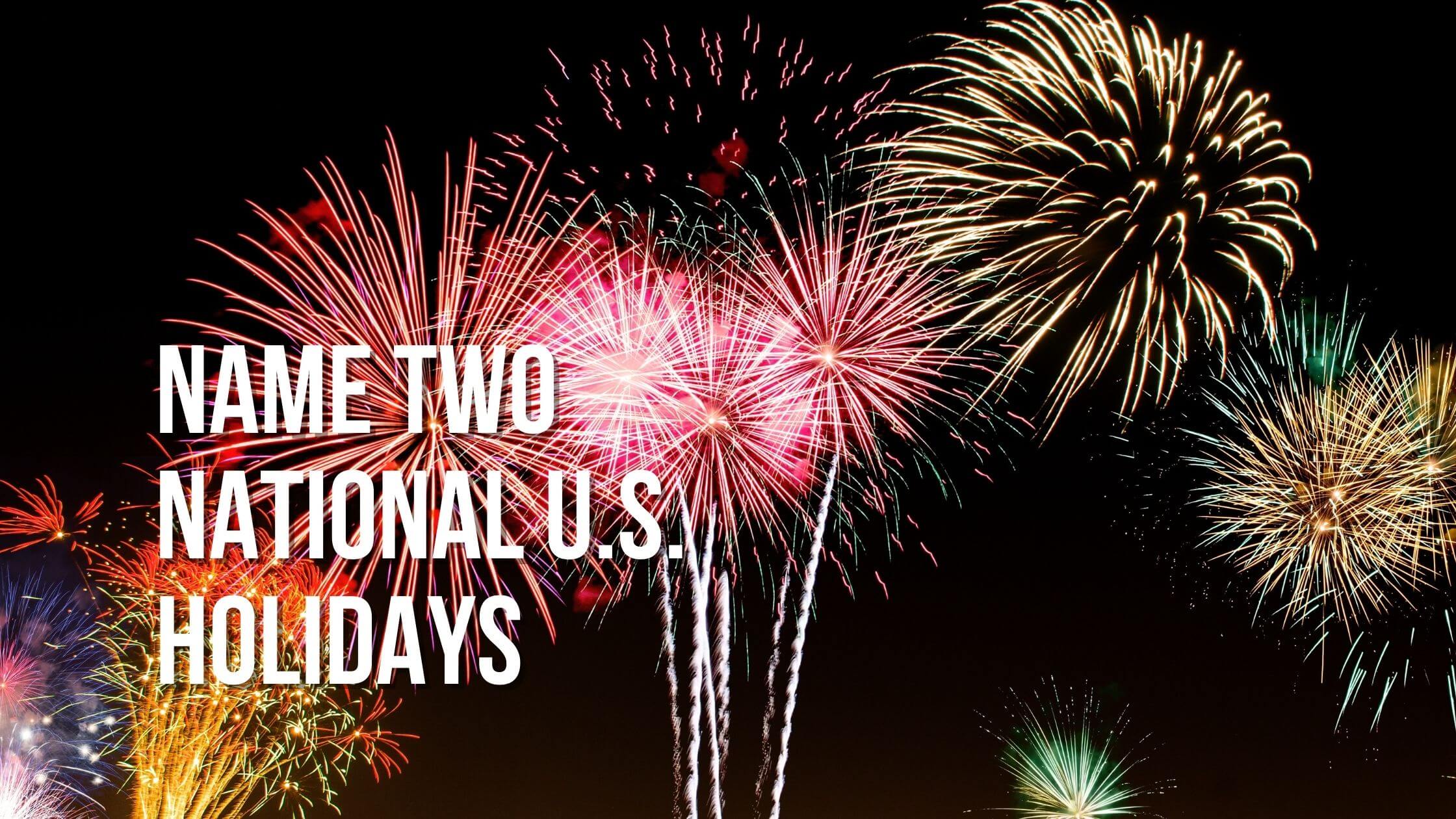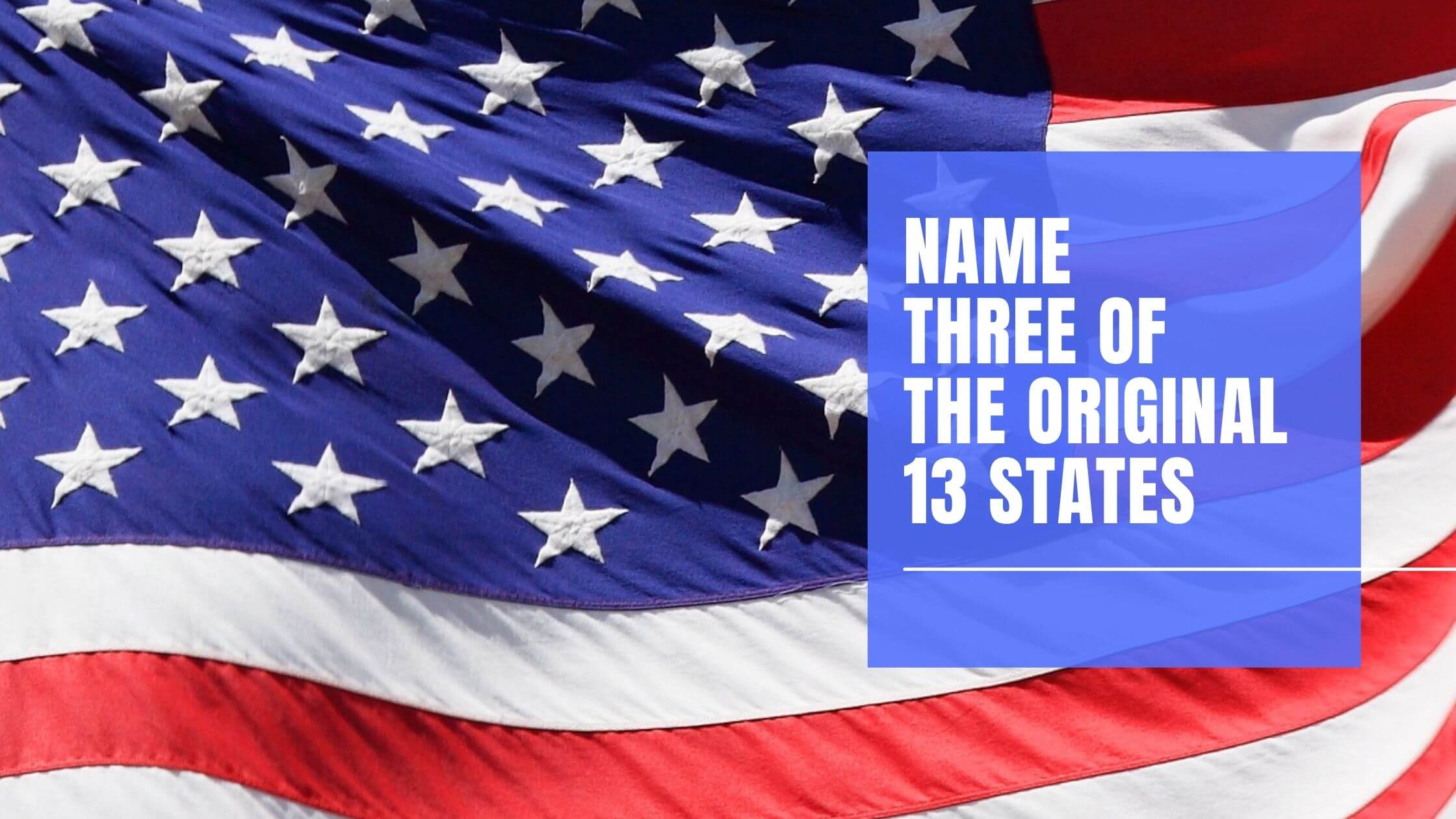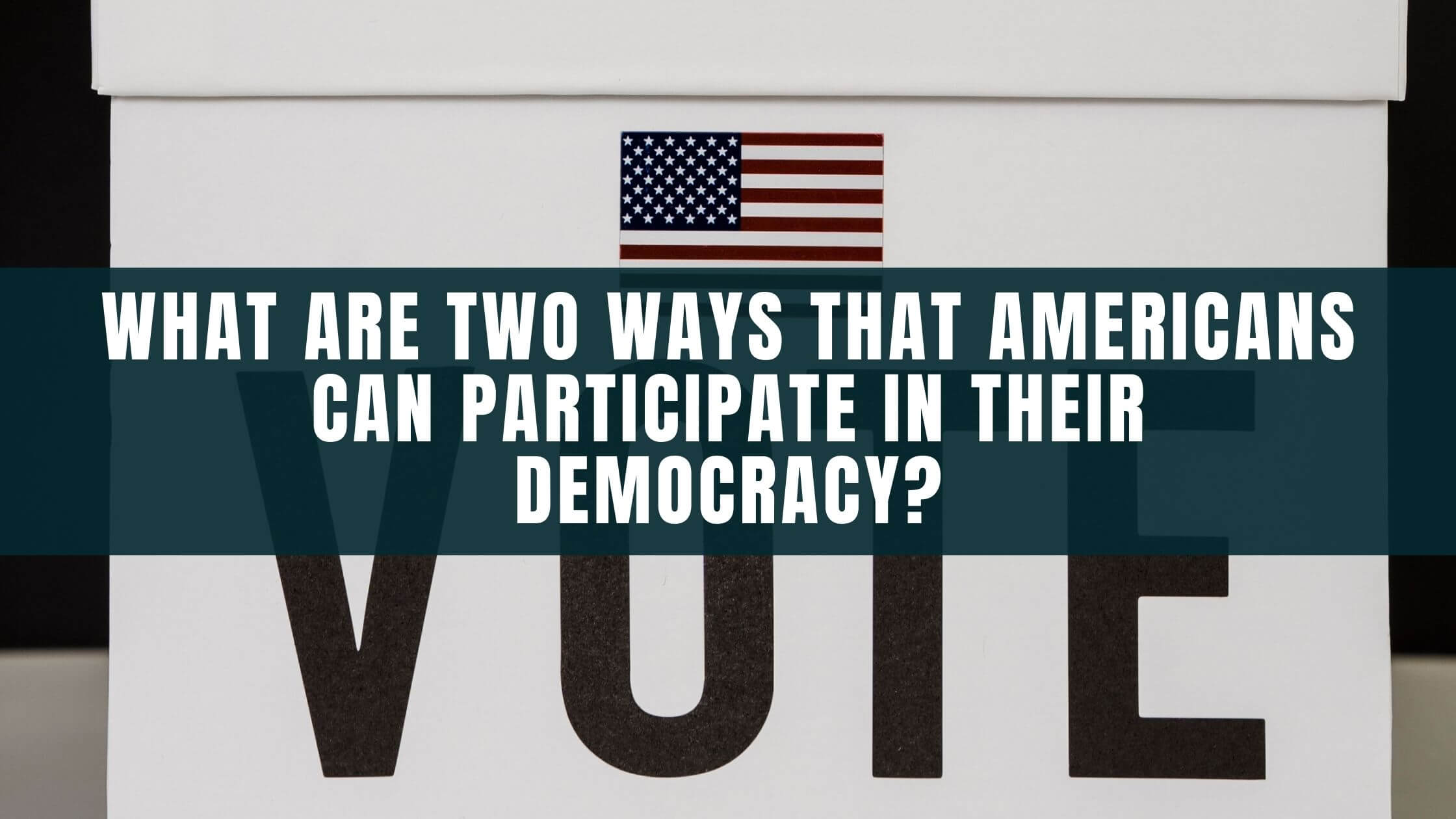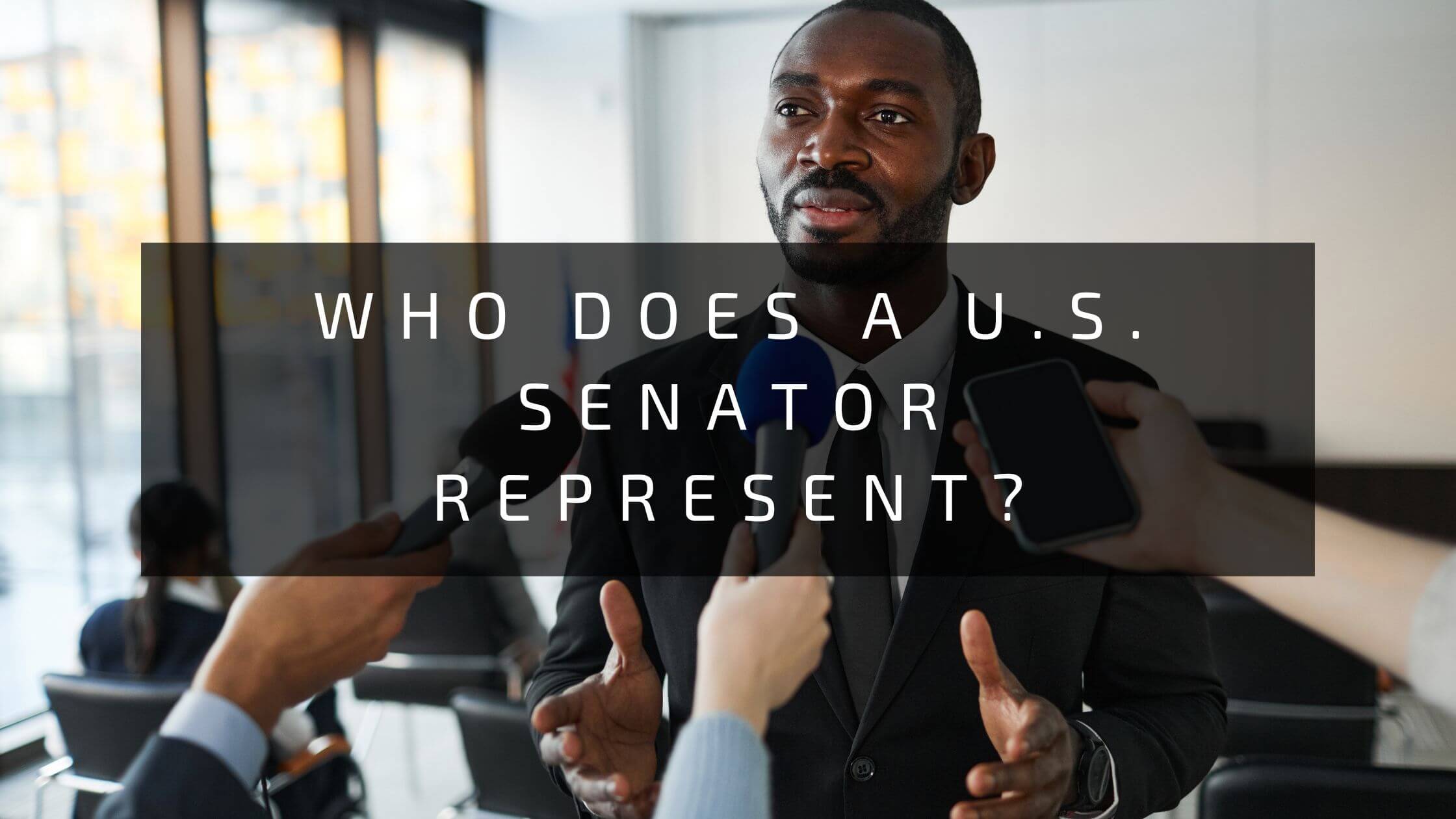Table of Contents
ToggleName Two National U.S. Holidays
Acceptable Answers:
- New Year’s Day
- Martin Luther King, Jr. Day
- Presidents’ Day
- Memorial Day
- Independence Day
- Labor Day
- Columbus Day
- Veterans Day
- Thanksgiving
- Christmas
What Are the Differences Between State and Federal Holidays?
A federal holiday has been designated for the whole nation to enjoy via the authority of Congress. Typically, this means that all government employees get time off and that government buildings are closed. There may also be the case that other institutions will close too, such as banks and schools, or that businesses will make the personal decision to give staff time off.
This is different from a state holiday. Here, workers may get time off, and businesses may close for something that isn’t celebrated on a national scale. This could be to honor someone related to that state or a historical event. It is also important to note that there are times when federal holidays may take on different names or meanings in different states.
What Are the Annual U.S. Holidays?
Working in chronological order through the year, we have the following dates.
1) New Year’s Day: This one is fixed to January 1st, understandably, and gives Americans the chance to take time off from work and sleep off the night before. Many will stay up to midnight and beyond to see in the new year.
2) Martin Luther King, Jr. Day moves around between the 15th and 21st of January so that it falls on a Monday. It marks the birthday of the infamous civil rights leader. It is often used as a day to promote volunteer work, and some focus on it as more of an American Civil Rights Day.

Get Smarter on US News, History, and the Constitution
Join the thousands of fellow patriots who rely on our 5-minute newsletter to stay informed on the key events and trends that shaped our nation's past and continue to shape its present.
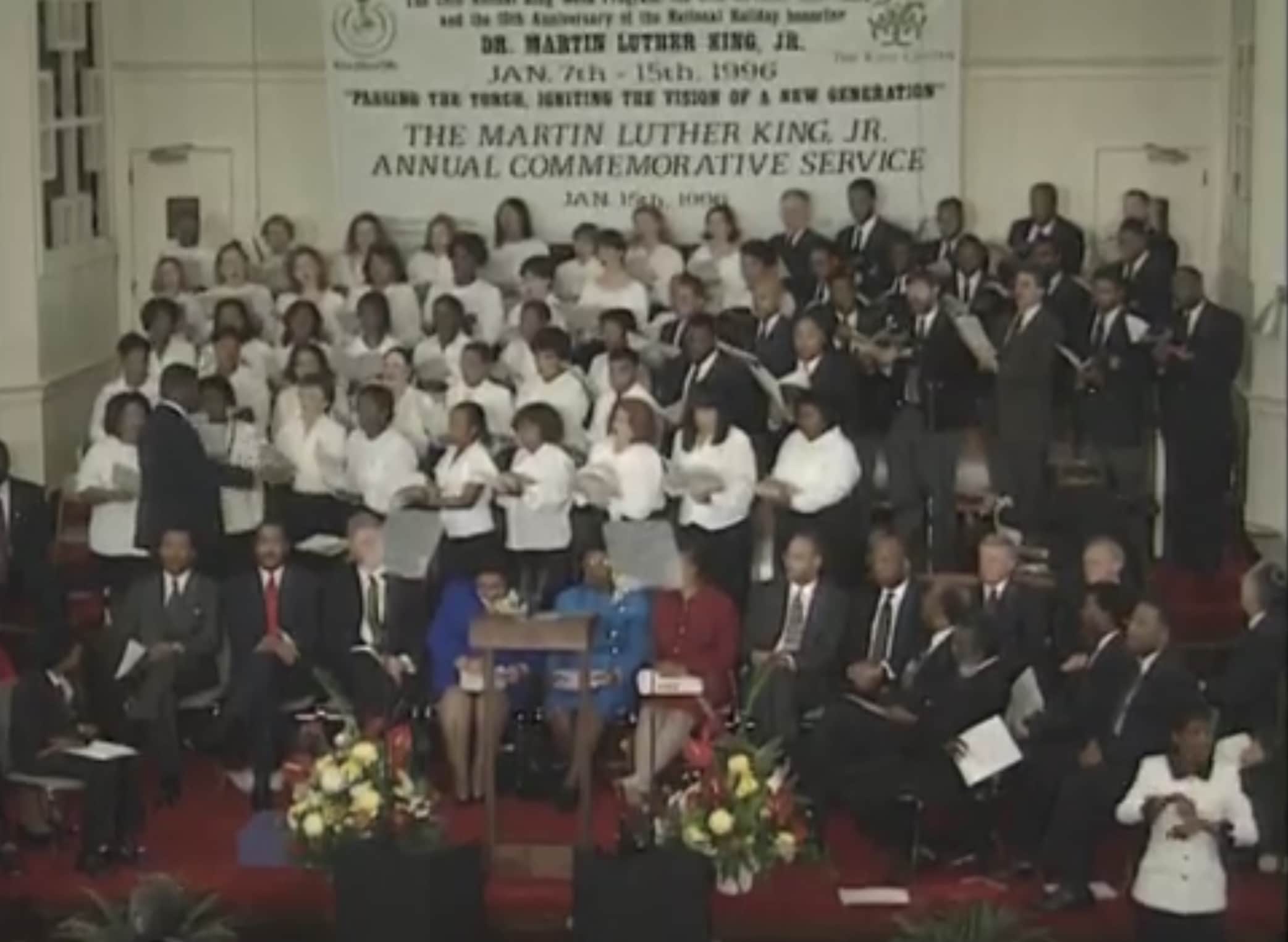
3) Presidents’ Day is a little less straightforward. It is officially known as Washington’s birthday and falls between February 15th and 21st. But, because Lincoln’s birthday is on the 12th, it is now better known as Presidents’ Day. This makes it a way to honor all those who have taken office.
4) Memorial Day is on the last Monday of May and is different from Veterans’ Day later in the year. Memorial Day is the day the nation takes a moment to pay respects to all those lost in conflict from the Civil War onwards.
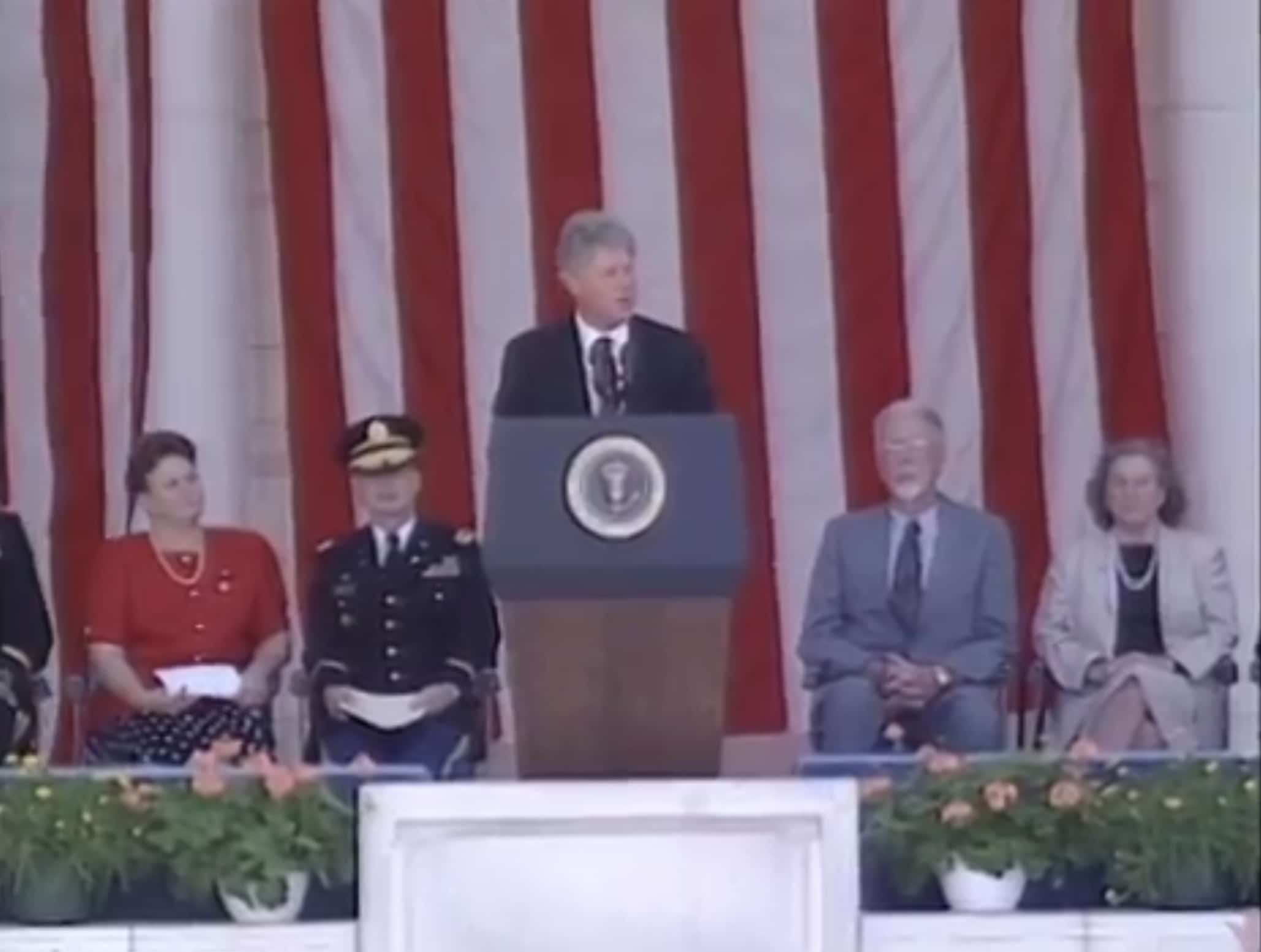
5) Independence Day. Also known as the 4th of July for its fixed date, this is where Americans celebrate the Declaration of Independence and the moment the nation broke free from British Rule. It is one of the biggest national celebrations in the country with big parades and fireworks displays.
6) Labor Day honors the labor movement in America and is today seen as a good break for government workers and those in other sectors. The timing of the holiday on the first Monday of September also means that it is seen as an unofficial end to the summer season.
7) Columbus Day. As mentioned below, this is a holiday not celebrated as intended in many states. The original aim was that the second Monday of October would celebrate the achievements of Christopher Columbus and his discovery of the Americas.
8) Veterans Day falls on November 11th, in line with Armistice Day in Europe. While Europe tends to honor the war dead, this happens on Memorial Day in America. So, Veterans Day is more for those who have served in the United States armed forces.
9) Thanksgiving is one of many Americans’ biggest family gatherings and feasts. This holiday on the last Thursday of November has ties to the end of the harvest, the Pilgrims on the Mayflower, and a more general gratitude for what we have in life.
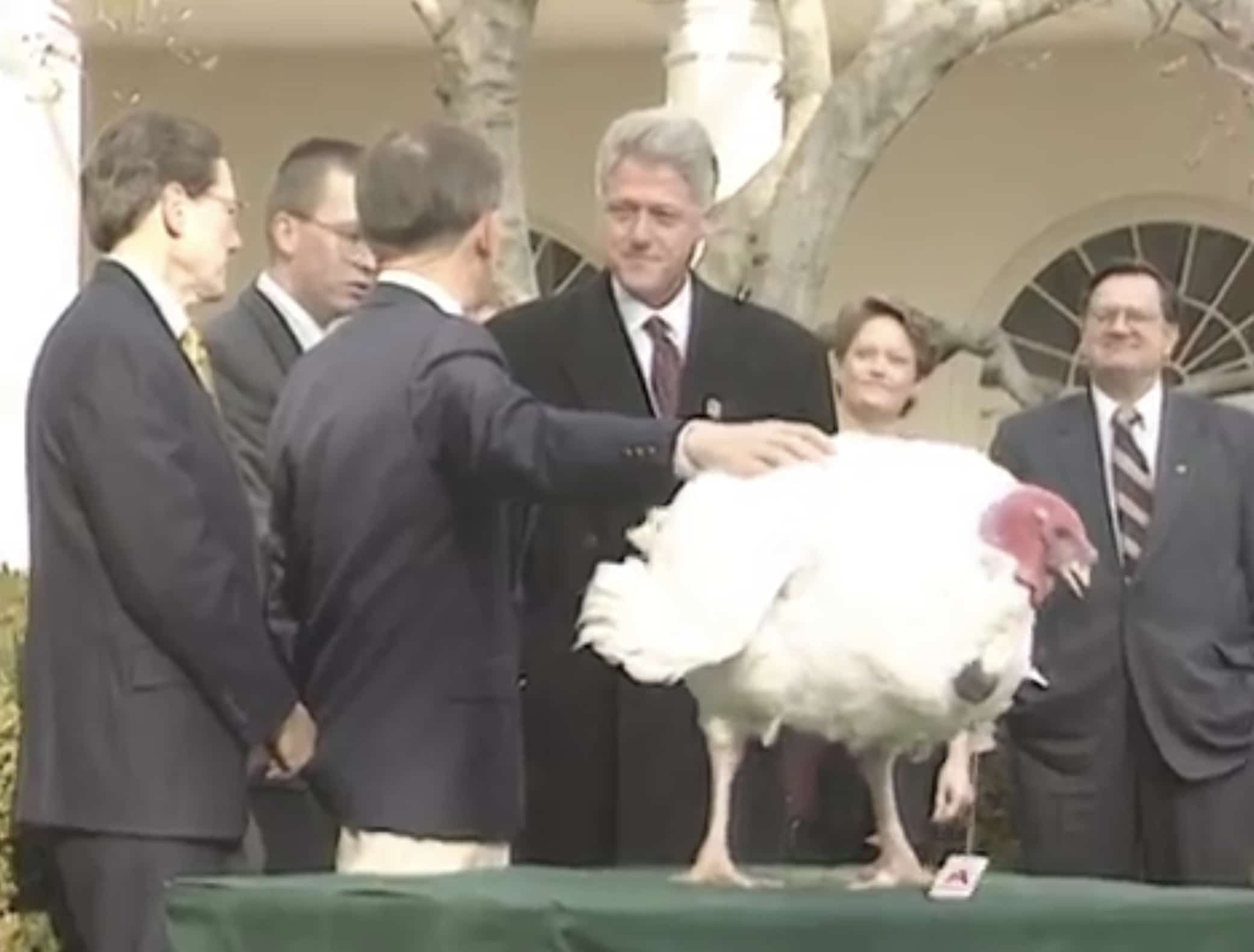
10) Finally, there is Christmas Day on December 25th. This one is interesting because it is the only religious day on the list. Still, many from other faiths or of no faith use the day in a secular way to celebrate the winter season with family and friends.
Why Is Columbus Day So Controversial?
Columbus Day is a valid answer as a national U.S holiday because it is recognized by the federal government and offered as a day off. Yet, many will not celebrate this day in its traditional form. Native Americans and other critics point out the problems in honoring Columbus because of what happened to indigenous people following the discovery of the Americas. As a result, 14 states do not mark the day. Many of those have alternative days, such as Discoverer’s Day in Hawaii and Native American Day in South Dakota.
Why Are There Only 10 National Days?
Another common question here is where there are only 10 national holidays across the year, and why these days and not others. It would be impossible to please everyone and have a day for all Presidents, national heroes, or other significant historical achievements. The country would close down each week.
Other national holidays have been proposed over the years. There are calls for a federal Native American Day rather than the official state one. Flag Day was proposed, as were days for a whole host of political figures and activists beyond Martin Luther King Jr. One of the more viable options is that of turning Election Day into a national holiday so people don’t have to work when they could be at the polls.
It is possible that the list will change over time or that names will change. But, for now, that list of 10 is what Americans celebrate every year.
